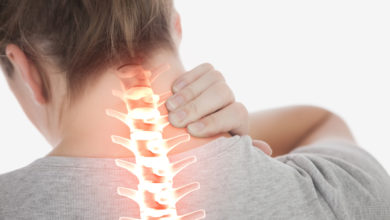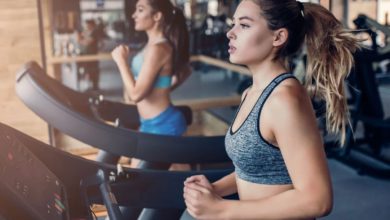LIFESTYLE HABITS THAT IMPROVE NARCOLEPSY

Medications, physical therapies & lifestyle changes go hand in hand whether it is about treating narcolepsy or any other health problem.
Talking about narcolepsy, it is a sleep disorder that directly interferes with the way the brain regulates the sleep-wake cycle. Narcolepsy triggers other sleep disorders like sleep paralysis, excessive daytime sleepiness, cataplexy, and hallucinations.
In the initial stages, wakefulness promoters like Modalert can treat the symptoms. But, if the symptoms are getting out of control then medications plus physical therapies are suggested together. For instance, some patients can heal excessive daytime sleepiness with medicine only. Some may be suffering from multiple excessive daytime sleepiness episodes along with the loss of muscular control & falls anywhere. Thus, the severity of symptoms influences treatment choices.
Narcolepsy & its negative impacts on health
This sleep disorder has negative effects on emotional, physical, psychological, and cognitive health. Overall, it degrades the quality of life, affects workplace performances & takes a toll on relationships too. However, practicing the right treatments like Waklert for managing symptoms along with lifestyle adjustments can reverse narcolepsy symptoms.
7 Tips to Relieve Symptoms of Narcolepsy
-
Incorporate a healthy sleep routine
What does a good sleep regime mean? Here is the answer:
- Dark room
Keeping the surroundings dark stimulates melatonin production. This signals the circadian rhythm that it’s nighttime and the body prepares for sleep. Make yourself comfortable in the bedroom with white noise and dim light at least an hour before bedtime.
- Calm inside out
A stress-free mind is very important for sound sleep. Thus, you should make it a practice to meditate, listen to calming music, or do anything that relieves anxiety and gets you in a mood for rest and sleep.
- Early dinner
Dine at least 2 to 3 hours before bedtime. Also, the lighter the load on your stomach, the faster you’ll be initiating sleep. In other words, heavy or fatty meals will increase the digestive time of food and you’ll feel heavy even after lying down on your bed. So, you better take a light dinner.
- No blue light before bedtime
It’s important to limit blue light exposure from digital devices that delay melatonin production. Keep your smartphone, laptop, tablet, etc. away at least an hour before going to bed.
- Regularity
Preparing a sleep schedule makes no sense unless you incorporate it into daily practice. You should make sure that you’re sticking to your sleep schedule without fail. Moreover, you should adjust your other activities around your sleep schedule instead of adjusting sleep according to everything else.
-
Schedule your naps
Excessive daytime sleepiness can be managed effectively by adjusting naps. A fine line of difference exists between EDS and other sleep apnea. For example, patients with obstructive sleep apnea might nap for 20 minutes to 1 hour and still wake up with a desire to sleep. They will feel sleepy again. This isn’t the case with narcolepsy. People suffering from narcolepsy feel refreshed after a nap during the daytime. Even a 20-minute nap will do!
-
Optimize sleeping schedules
Creating a sleep schedule and sticking to it is one thing and adjusting your sleep schedules according to situations is another. For instance, you have to manage your sleep routine while on a work trip or vacation. Similarly, if your existing sleep routine isn’t working out, see what changes are desired so that you can readjust the sleep schedule accordingly.
In short, optimizing sleep schedule is the key to getting the quality sleep you deserve.
-
Engage in physical activities
The golden rule to sleep well is to feel dead-tired before bedtime. In other words, if you’re engaged in physical activities like exercising or staying physically active during the day then you’re more likely to get better sleep.
Your circadian rhythm gets messed up when you aren’t active. It doesn’t know when to phase in and out of alertness. Hence, you should make a schedule to stay active so your body knows it’s time to rest at night.
-
No Smoking, Caffeine or Alcohol
Any drug addiction or caffeine intake before bedtime is your sleep killer. The logic is simple, it gives an energy boost that keeps you from sleeping. For instance, coffee addicts who consume coffee on repeat to stay awake late during the night will not get any sleep help from narcolepsy medications like Artvigil too.
Make it a rule that you’ll neither smoke nor consume caffeine or alcohol for the sake of good sleep hygiene.
-
Keep away from stress
Nighttime is the time where nothing should come between you and your sleep, not even stress! Stress will upset you and is an anti-sleep trigger. When you’re off to bed, make sure that you only count sleep and not plan your next day in your head. Create a general rule that you’ll not let your mind wander elsewhere but surrender to sleep while on the pillow.
-
Get help from friends and family
Even the warmth and support from your loved ones can help improve the symptoms of narcolepsy. The National Sleep Foundation suggests that patients share with their close ones that narcolepsy is a neurological disorder. It interferes with the sleep-wake cycle and is not a condition where you need more sleep. Additionally, discuss what you’re going through, how it affects your health, and what you can do to manage it.
Wrapping up
Being diagnosed with narcolepsy is not the end of sleep health. You can still make it happen with the help of the right medications and necessary lifestyle changes. For instance, you can get rid of narcolepsy with Modvigil and essential lifestyle adjustments. However, avoid taking any further steps without guidance from your medical care provider. Practice lifestyle changes suggested by your doctor and your symptoms will gradually fade away.




